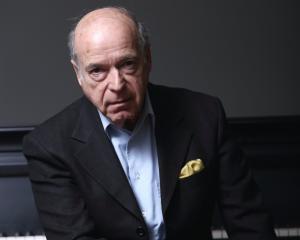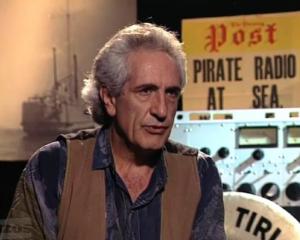A high-profile Los Angeles law firm representing multiple recording artists plans to file legal action in response to news that a massive number of original master recordings were destroyed in a 2008 fire at Universal Studios Hollywood.
"We have many very concerned clients," attorney Howard King, partner in King, Holmes, Paterno & Soriano, said last week.
"This has a potentially huge impact on their future, coupled with the rather disturbing fact that no one ever told them that their intellectual property may have been destroyed. There is a significant amount of discussion going on, and there will be formal action taken."
King declined to identify specific artists signed to Universal Music Group labels whose master recordings may have been destroyed, according to a blockbuster investigation published last week by the New York Times Magazine, but said that, "more than 10 but fewer than 100 clients" would be seeking legal redress, noting the fast-moving response after the extent of the fire damage came to light.
The total number of master recordings lost in the fire could run as high as 500,000 recordings, the report said. Only a fraction of the original masters held in the facility were adequately copied, the story said, resulting in the loss of irreplaceable original masters by Louis Armstrong, Billie Holiday, Aretha Franklin, Chuck Berry, Buddy Holly, the Eagles, Elton John, Tom Petty & the Heartbreakers, Duke Ellington, Count Basie, Ella Fitzgerald, Muddy Waters, Judy Garland, Patsy Cline, Bing Crosby and dozens, if not hundreds, perhaps thousands, of other recording artists.
Original master recordings are the source material for commercially released versions that are sold, downloaded or streamed by consumers. They are typically the wellspring from which remastered or remixed reissues, box sets and other archival releases originate year in and year out, decade after decade.
Universal Music Group, or UMG, is the world's largest recorded-music company. In 2018, its global market share was about 31%, well ahead of second-place Sony Music's 21% and Warner Music Group's 18.5%, according to industry figures.
France-based Vivendi SA, the parent company of UMG, is moving to sell off up to 50% of UMG, now that music streaming has turned the tide and helped make the major recording companies profitable after years of losses in the digital age.
UMG took issue with the New York Times Magazine story, citing "numerous inaccuracies, misleading statements, contradictions and fundamental misunderstandings of the scope of the incident and affected assets."
The company's statement insisted, "Music preservation is of the highest priority for us and we are proud of our track record. While there are constraints preventing us from publicly addressing some of the details of the fire that occurred at NBCUniversal Studios facility more than a decade ago, the incident -- while deeply unfortunate -- never affected the availability of the commercially released music nor impacted artists' compensation."
A UMG spokesman said the company has no comment on the proposed lawsuits.
A fire on June 1, 2008, decimated a storage facility owned by NBCUniversal on the grounds of Universal Studios Hollywood; various clients rented space in the building for film and audio recordings.
At the time of the fire, facility officials said only copies of films had been kept there, and a Universal Music Group spokesman told The Times in the aftermath of the fire that "in a sense, nothing was lost," because materials had been backed up with digitized copies.
King said he expected to file individual lawsuits on behalf of clients rather than class-action suits.
"The claims of the people who have lost their futures in some respects are far more significant than would be dealt with in a class action," he said. "Class-action suits generally are filed on behalf of many people who are in a similar situation with relatively small claims. The claims of our clients are significant enough to justify individual lawsuits."
It's hard to understate the impact the news is having on those who have spent their lives writing songs, working up arrangements, recording, mixing and mastering songs into a form they wish to present to the public.
"There is nothing like the original master," said Benmont Tench, keyboardist and founding member of Tom Petty's Heartbreakers. While he said he does not know if any master recordings he was part of were destroyed, he was stunned for any of his peers who may have suffered losses.
"The master recording is like a painting," he told The Times. "When you stand in front of the original, you are standing there in the presence of the artist. You can take a photo of the painting, but no photo -- regardless of how high the resolution might be -- can truly capture what's in the original canvas."
Ed McPherson, who heads another prominent litigation firm in Los Angeles, McPherson LLP, representing entertainment clients, said he had also heard from numerous musicians concerned about the fate of recordings they may have lost. He said, "We are definitely exploring all options.
"It is inconceivable to me that the largest record label [group] in the world could be in this situation, with masters going back to the 1940s, which are irreplaceable, and they did not put them in a vault that's fireproof or otherwise tamper-proof. It just blows my mind," McPherson said.
McPherson declined to identify specific artists who have contacted him, but said, "I certainly have represented some of the clients that are on the list [of musicians whose recordings were held at the storage facility] and definitely others who have been inquiring. Everyone feels kind of victimized," he said, "and they don't know what to do."
The article also cited internal memos from UMG publicists to their higher-ups stating that they had "stuck to the script about physical backups and digital copies."
Yet in 2009, according to court documents, Universal Music sued NBCUniversal and its parent, Vivendi Universal, in Los Angeles Superior Court, alleging negligence in the maintenance of the storage unit and seeking unspecified compensation and damages. The suit played out for four years before a confidential settlement was reached in 2013.
"We're hearing ridiculous numbers" of the settlement amount, King said. "That would be a good fact to find: how much Universal Music got and then forgot to report to their artists, and to share with their artists."
One of King's partners, veteran entertainment lawyer and former record executive Peter Paterno, added, "We have a lot of affected clients. That list of artists [whose recordings were destroyed] includes a significant portion of our client list."












